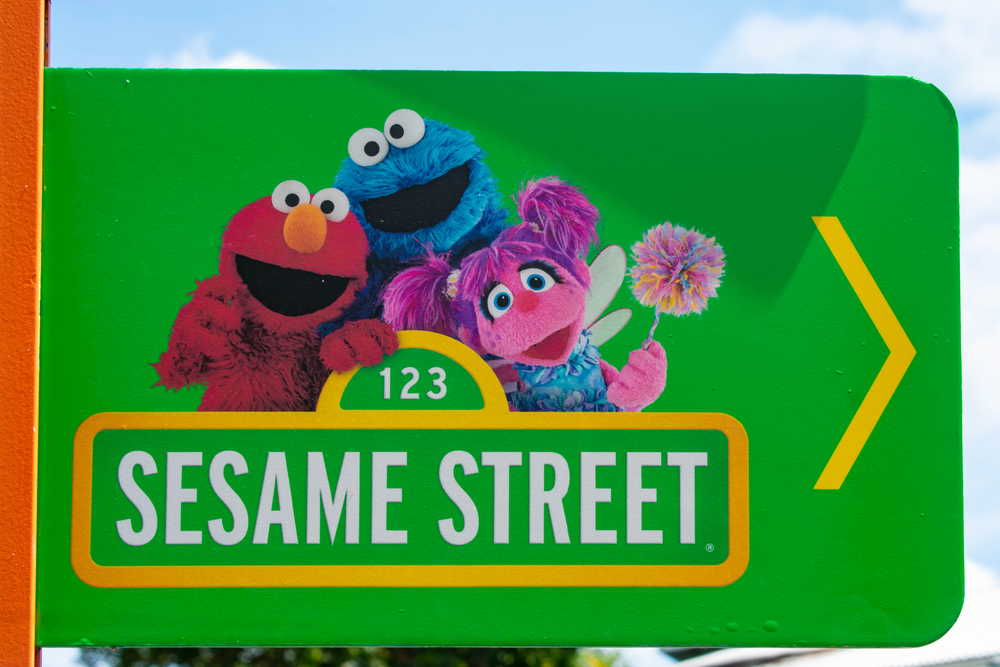On Fairness - Aesop vs Sesame Street
The YouTube algorithm is a mysterious thing. It’s supposed to recommend videos you might like, based on videos you’ve watched and rated before, but as far as I can tell the recommendations are generated randomly by a half-asleep chimpanzee. Still, just as broken clocks are still right twice a day, random suggestions can manage to highlight things worth checking out. A while back, the YouTube algorithm put, of all things, a clip from Sesame Street in my recommended videos. This episode featured a guest appearance by Brett Goldstein, best known for his role in Ted Lasso as the hot-tempered and extremely foul-mouthed professional athlete Roy Kent. Curiosity got the better of me, so I checked it out.
(As an aside, the writers of this episode seemed to include a metaphorical wink to any adults in the audience who are familiar with the Roy Kent character – when Goldstein is told that the letter of the day is F, he responds by saying how much he loves using the letter F.)
In the clip, Goldstein and a Sesame Street character named Tamir have just finished baking cookies and announce they will be revealing the word of the day. Tamir tells us that the word of the day is “fairness.” Goldstein responds by telling the audience that “fairness is when each of us gets what we need.” This immediately causes Cookie Monster to appear and declare that he needs one of the cookies that Goldstein and Tamir just made. Goldstein agrees that Cookie Monster should be given one of the cookies because that would be fair. Shortly after this, they decide to go play some soccer but first need to clean up the mess made from baking the cookies. At that point, they tell Cookie Monster that fairness requires him to help them clean up the mess they made.
Of note, Cookie Monster being given a cookie and helping clean up the mess isn’t presented as an example of a fair exchange. It’s not that Cookie Monster offers to help them clean up the mess in exchange for one of the cookies, and then both parties agree that would be fair. Each act is treated as independent of, and unrelated to, the other. If Cookie Monster had happened to show up after the mess had been cleaned, fairness would still have required him to be given a cookie he had no part in creating, and if Cookie Monster had arrived after the cookies were gone, fairness would still have required him to use his labor cleaning up a mess he had no part in making.

What this immediately brought to mind was a story from my own childhood that also aspired to teach a lesson about fairness, albeit with a very different conception of what that means. I’m referring to Aesop’s fable of The Ant and the Grasshopper. On the off chance you’ve never heard this fable, it can be briefly summed up as follows:
Now, by the definition of “fairness” given by Sesame Street, we should conclude that this is a story about the unfairness suffered by the grasshopper. After all, “fairness” is when each of us gets what we need, and in the winter months, the grasshopper needed food and shelter but didn’t get any. Ergo, the grasshopper going hungry while the ant remained fed was, by definition, unfair. But that wasn’t the moral of the story. Instead, it was considered obvious that the grasshopper’s fate was completely fair, because fairness wasn’t taken to mean “each of us gets what we need,” but something more like “each of us gets what we earn.” Even if you needed something, you couldn’t simply take it away from someone under the guise of “fairness.” Fairness didn’t give you the right to insist others be made worse off for your benefit, with you owing them nothing in return.
Of course, none of this is to speak out against helping those in need. Offering to help someone clean up in the kitchen, or offering to share some cookies you just made, is a very nice thing to do, and I would do that myself. But it’s taking things a bit too far to demand that others give you their cookies or help clean up your mess because otherwise it’s not fair. That turns virtue into vice, and converts kindness into self-absorbed entitlement.

